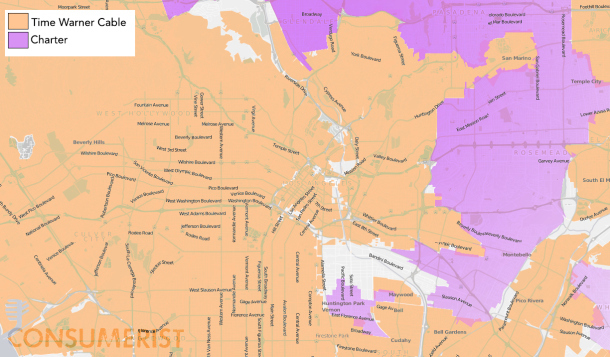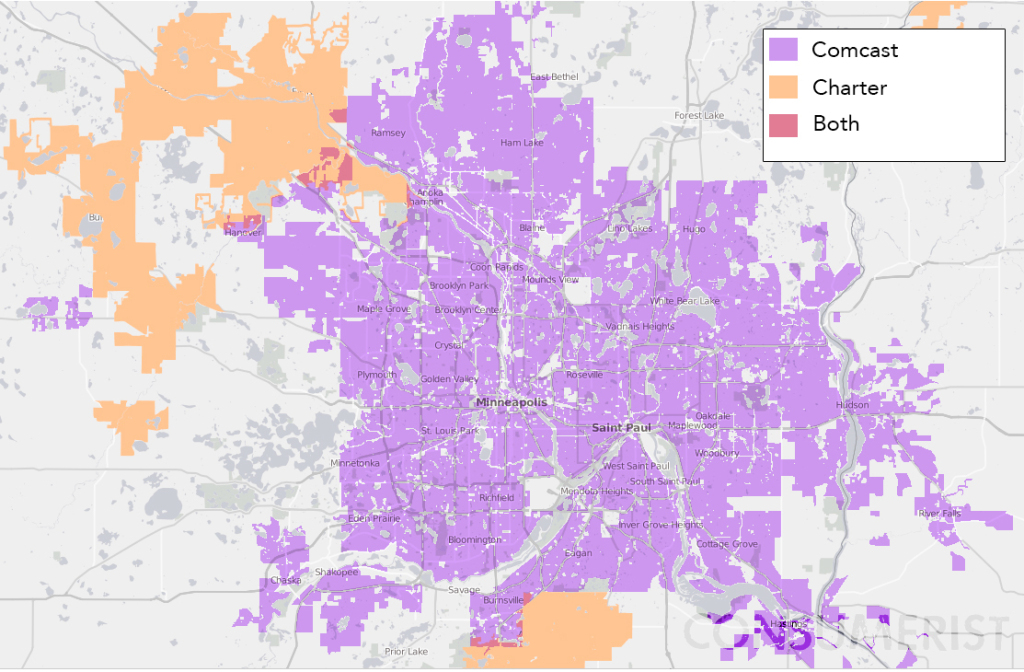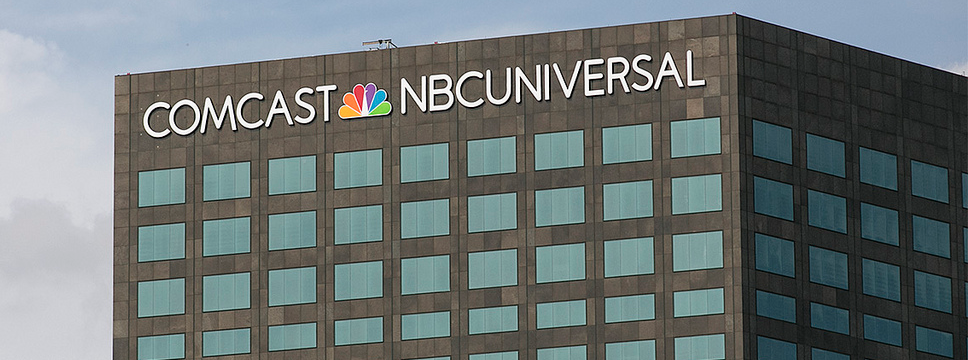Comcast Deal With Charter Isn’t About Improving Competition; It’s About Carving Up Marketplace
From the moment Comcast and TWC announced their mammoth merger earlier this year, the companies said they would be shedding a few million customers to keep their total, combined customer base at the 30% market share that is often cited as a maximum, but which courts have shrugged off.
But this isn’t really about keeping marketplace competitive. Because, as Comcast CEO and scion Brian Roberts has already admitted, there is no real competition in the cable marketplace thanks to decades-old monopolies.
This is not Charter suddenly being granted access to compete in areas dominated by TWC or Comcast. Nor is “SpinCo” — the company formed by Comcast’s spinning off of 2.5 million customers into a new business partially owned by Charter — a new player that will enter into Comcast/TWC or Charter markets to compete. This is just a lot of shuffling and rearranging being done under the pretense of competition that doesn’t exist.
“This is a very complicated deal,” explains our colleague, Delara Derakhshani, policy counsel for Consumers Union, “but it looks like Comcast and Charter are trying to carve up the marketplace to their benefit.”
The biggest win for Comcast is Los Angeles. As you can see from the following map of Los Angeles that we produced for a recent story on the lack of broadband competition, most people in L.A. are either TWC customers or Charter customers. As part of this deal, Comcast would get Charter’s L.A. holdings, giving it a lock on the L.A. customer base:

Likewise, in Minneapolis, where Comcast has dominated the market with Charter nibbling at the edges, it looks like those customers will become part of the SpinCo family, meaning Charter benefits greatly as it now has a stake in the entire Twin Cities pay-TV and broadband market:

The current state of broadband competition in Minneapolis-St. Paul; but it will all change if the Comcast deal is approved.
The companies argue that having contiguous coverage in an area will allow them to offer better service and better prices, but what they really mean is that it will allow them to save money (which won’t be passed on to you) and will give them more monopoly power in these regions.
“It’s hard to see how any of this benefits consumers or competition,” says Derakhshani.
Want more consumer news? Visit our parent organization, Consumer Reports, for the latest on scams, recalls, and other consumer issues.


